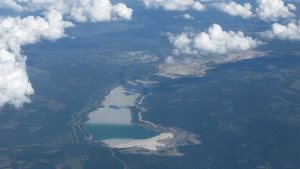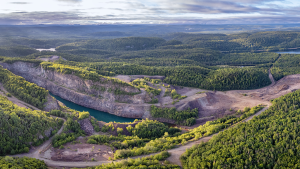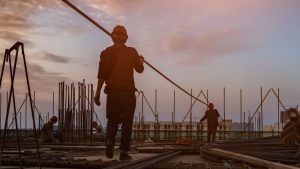The Association of Professional Engineers and Geoscientists of B.C. (APEGBC) voted in favour of a new registration bylaw, which outlines the requirements for granting professional membership to qualified applicants.
Professional Certification
Engineers in British Columbia are once again certifiable. The Association of Professional Engineers and Geoscientists of Biritish Columbia (APEGBC) voted in favour of a new registration bylaw, which outlines the requirements for granting professional membership to qualified applicants.
The association recently announced that 97 per cent of its membership voted in favor of a new registration bylaw. The APEGBC’s existing bylaw governing registration of professional engineers and geoscientists was ruled invalid by a B.C. Supreme Court Judge in September.
On Dec. 14, Judge Johnston, the original ruling judge, delayed the effect of the decision until March 21, 2008. This delay gives the APEGBC time to put a new bylaw in place and ease the impact of the initial ruling. About 189 applicants were affected by the September decision and will be granted their professional designation immediately.
At this stage in the process, the new registration bylaw will be sent for review by the Lieutenant Governor in Council. If successful, the review will be concluded in early February, after which the new bylaw will take effect.
The main aim of the new bylaw is to provide a clear definition of what experience is necessary to become professional engineers and geoscientists in B.C.
“We’re addressing this situation on a number of levels, and I’m very pleased that we can once again grant registrations, while we put a new by-law in place,” said Janet Benjamin, APEGBC president.
Johnston ruled on Sept. 21 that the association has the authority to weigh the qualifications of those applying to become professional engineers and geoscientists. However, he stated in the ruling that there were some points that needed clarification.
“The fault has been in the lack of definition of what experience is necessary, and the failure of the (association) to articulate the nature and extent of experience it requires in a bylaw,” he said.
Section 13 (1)(c) of the Act notes that experience requirements are established by the bylaws, whereas the corresponding bylaw, Bylaw 11 (e)(2), notes that the four years experience requirement is at the discretion of council, thus establishing a circular relationship between the Act and the bylaws.
“This matter should be remitted to the association so that it can articulate its experience requirements in a bylaw against which it can then apply the evidence provided by the petitioner,” concluded the judge.
As a result of this ruling, there was no longer a bylaw which outlines the requirements for becoming a professional engineer or professional geoscientist in B.C.
Serguei Tchou-San-Da was refused membership in the APEGBC on four separate occasions between January 2001 and September 2006.
He took the association to court and challenged the validity of the Engineers and Geoscientists Act.
Tchou-San-Da has a PhD in materials engineering from a research institute in Russia.
He was refused membership because he was not able to gain adequate North American experience.
https://canada.constructconnect.com/joc/news/associations/2021/04/tchou-san-da-heres-my-side










Recent Comments
comments for this post are closed